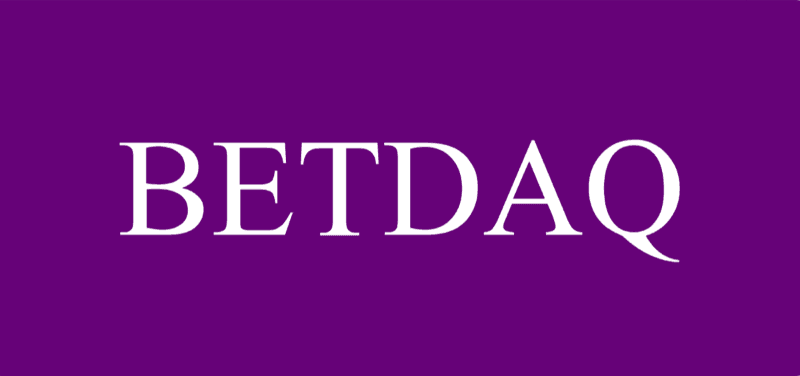
Yes, it’s true. North Korea are officially the Unofficial Football World Champions. Heads will shake and eyebrows will raise but, in beating former champions Japan 1-0 on Tuesday, North Korea won the UFWC title and took (virtual) possession of the CW Alcock Cup. It’s a shock that many football fans are still getting used to, with North Korea becoming one of the least likely champions the game has ever seen.That, of course, is the beauty of the UFWC. Anything can happen over the course of 90 minutes, and North Korea deserved to take the title from Japan, who had taken the title from Argentina, who had taken the title from Spain… and so on. If you’re new to the UFWC (a very warm welcome) you might like to read our About section to get yourself up to speed on exactly what is going on here.
North Korea, some say Korea DPR, were ranked a lowly 124th in the world by FIFA (some 107 places below Japan), and have already been eliminated from the qualifying stages for the 2014 World Cup. And yet they stand before us today as the very best team in the world. And that’s (un)official.
There have been some unlikely UFWC champions over the course of the tournament’s 139-year history (Angola, Israel, Venezuela…) but none from such a lowly international football standing as North Korea. The only exception is a nation that no longer exists. The Netherlands Antilles pulled off the biggest shock result in UFWC history by defeating Mexico 2-1 in 1963 to become unofficial champions. But the Netherlands Antilles was dissolved as a nation last year. So North Korea can safely claim to be the most unlikely nation still in existence to have held the UFWC title.
But what do we know about the new champions? First let’s clear up any confusion regarding the name. We’re using North Korea, the most commonly-used Western name for the country. Its full name is the Democratic People’s Republic of Korea, and the country is usually referred to as Korea DPR by FIFA. If you want to be pedantic, the country’s official name is Choson-minjujuui-inmin-konghwaguk, but we’ll stick with North Korea if that’s alright with everyone.
North Korea’s first UFWC title match took place at the 1966 World Cup – the nation’s most fondly-remembered football tournament, at which they famously beat Italy 1-0. However, the UFWC match, against the Soviet Union in Middlesbrough, ended in a 3-0 defeat.
More recently, North Korea qualified for the 2010 World Cup in South Africa, only to lose all three group matches (none of which were UFWC title matches). The team did play reasonably well in a 2-1 defeat to Brazil, but were less impressive in a 7-0 defeat to Portugal. At the 2011 Asian Cup in January, North Korea drew 0-0 with the United Arab Emirates, and lost 1-0 to both Iran and Iraq.
The team’s next two UFWC title matches came against Japan, and were both qualifying matches for the 2014 World Cup. North Korea lost the first match – narrowly, to a single 94th-minute Maya Yoshida goal. The return fixture of course reversed that scoreline, with North Korea winning 1-0 courtesy of Pak Nam-Chol’s 49th minute goal.
The majority of North Korea’s national squad members play in the country’s domestic league, a competition that appears to be as confusing and insular as the country itself. The Korea DPR League contains ten teams, and is contested over three rounds, with the clubs divided into three classes. The 2010 “Highest Class Football League” was won by the Korean People’s Army team April 25 (also known as 4.25 Sports Team). UFWC goalscoring midfielder Pak Nam-Chol plays for April 25, as does the North Korean captain Ri Kwang-Chon. (Incidentally, there are two Pak Nam-Chols in the North Korean national squad, and both played in the UFWC victory over Japan. The other is a defender who plays for Amrokgang.)
The unorthodox nature of the domestic competition, coupled with the Korea Football Association’s reluctance to comply with FIFA’s transfer policies, means that North Korean club teams are ineligible to play in continental club competitions, such as the AFC President’s Cup, and therefore rarely face opposition from outside the country. A handful of North Korean internationals do play for foreign clubs.
Midfielders Ryang Yong-Gi and An Yong-Hak play for J. League Division 1 sides Vegalta Sendai and Kashiwa Reysol respectively, while defender Kim Song-Gi plays for Cerezo Osaka. Interestingly, all three Japan-based players were left on the substitute’s bench for the match against the Blue Samurai. Defender Cha Jong-Hyok, who plays in Switzerland for FC Wil, also sat on the bench, but 18-year-old striker Pak Kwang-Ryong, who plays for FC Basel, made the starting eleven.
Perhaps the most interesting member of the North Korean squad is striker Jong Tae-se, nicknamed “the People’s Rooney”, and known as Chong Tese in Japan and his current home of Germany. Jong was born in Japan to South Korean parents, and studied – and played football – at a Toyko’s Korea University, an institution funded by Chongryon, a group that represents North Koreans in Japan. He subsequently decided to apply for North Korean citizenship, and was awarded a North Korean passport. However, as South Korea does not officially recognise North Korea as a country, Jong was unable to complete the citizenship process, and curiously remains a South Korean citizen with a North Korean passport.
Jong, or Chong Tese, played for four seasons in Japan at Kawasaki Frontale, where he scored 47 goals in 115 appearances. He scored four goals on his international debut, appeared at the 2010 World Cup, and subsequently won a move to VfL Bochum in Germany. Jong scored 10 in 25 in Bundesliga second division last season, and has scored 3 in 9 so far this season. Internationally, he’s scored 15 goals in 28 appearances for North Korea. Jong was withdrawn towards the end of the first half of the Japan match, apparently suffering from an injury.
So where will North Korea take the UFWC? Back to Tajikistan for starters. North Korea’s next fixtured match is their final “dead rubber” World Cup qualifier in Dushanbe on 29 February 2012. Tajikistan were crushed 8-0 and 4-0 by Japan in their final two wins as champions, and it seems unlikely that the Tajikistanis will provide particularly strong opposition (although they are only ranked six places behind North Korea by FIFA).
There is always the possibility that North Korea will arrange a friendly match ahead of the Tajikistan game. Contrary to some comments posted here on the site, the country does play friendlies (five so far in 2011). So the next UFWC match may come around quicker than expected.
Looking further ahead, North Korea will play at the AFC Challenge Cup tournament following on from the Tajikistan match, in March 2012. Indeed, North Korea are the reigning champions in this competition for “emerging nations”, so the UFWC title is not the only one they hold. The tournament takes place in Nepal, and also features Palestine, the Philippines, India, Turkmenistan, the Maldives, and of course our old friends Tajikistan.
Undoubtedly there are some interesting times ahead. Whatever the path of the UFWC over the coming months, it looks set to shine a spotlight on several nations that rarely capture the attention of the wider footballing world. As enjoyable as Japan’s long run as champions was, North Korea’s reign looks like being every bit as much fun. You can follow every step of the UFWC’s North Korean adventure right here.
You can read more about the UFWC, its legendary teams and footballing minnows, classic finals and forgotten friendlies, celebrated players and unsung heroes, in the book Unofficial Football World Champions, now available from all good bookshops. The English edition is published by Superelastic and is available in paperback and on Kindle from Amazon.co.uk and other Amazon stores around the world. There is also a Japanese language edition, published by Asuka Shinsha and available from Amazon.co.jp.
You can keep up with all things UFWC by following us on Twitter or joining us on Facebook.




